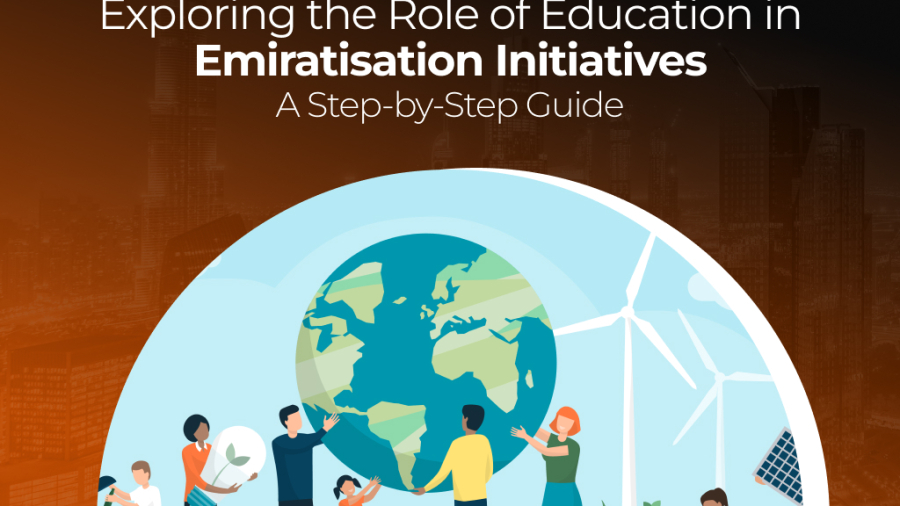Emiratisation, a significant national policy in the United Arab Emirates (UAE). Aims to integrate Emirati nationals into the workforce, particularly in the private sector. This strategic initiative has been a cornerstone of the UAE’s socio-economic development, ensuring that Emiratis are not only participants but also leaders in their national economy. As we look towards the future, it’s essential to understand the trends and predictions shaping Emiratisation. This article delves into these aspects, offering insights into what lies ahead for Emiratisation in the UAE.
Introduction to Emiratisation
Emiratisation is the UAE government’s ambitious initiative to increase the number of Emiratis. In the workforce, especially in the private sector. This policy aims to address the high unemployment rate among Emiratis and to reduce the country’s reliance on expatriate workers. The ultimate goal is to create a more balanced and sustainable economy where Emiratis play a critical role.
Private sector companies have encouraged Emiratis to join their workforce through the introduction of various programs and incentives over the years. These include training programs, salary subsidies, and quotas. Despite these efforts, the private sector’s uptake has been slower than anticipated, leading to continuous revisions and enhancements of the Emiratisation strategy.
Trends in Emiratisation
Increasing Government Incentives
One of the most noticeable trends in Emiratisation is the increasing range and scope of government incentives designed to encourage private sector participation. These incentives include financial subsidies, reduced operational costs for businesses that meet Emiratisation quotas, and significant tax benefits. The UAE government is also investing in training and development programs to ensure that Emiratis. Are equipped with the necessary skills and knowledge to thrive in various industries.
Technological Integration
The integration of technology in the Emiratisation process is another emerging trend. The UAE government is leveraging digital platforms to streamline the recruitment and training processes. Online portals and mobile applications are being used to match Emiratis with suitable job opportunities. Provide training resources, and track the progress of Emiratisation initiatives. This technological approach not only makes the process more efficient but also more transparent.
Focus on High-Skill Sectors
There is a growing emphasis on integrating Emiratis into high-skill sectors such as technology, finance, and healthcare. These sectors are crucial for the UAE’s future economic development and require a highly skilled workforce. By focusing on these industries, the government aims to ensure that Emiratis are not only part of the workforce but are also driving innovation and growth in critical areas.
Predictions for the Future of Emiratisation
Enhanced Collaboration with the Private Sector
In the coming years, we can expect to see enhanced collaboration between the government and the private sector. This collaboration will be essential for addressing the challenges that have hindered the progress of Emiratisation. Joint initiatives, public-private partnerships, and industry-specific programs will likely become more common, fostering a more inclusive and dynamic employment landscape.
Expansion of Staff Outsourcing
Staff outsourcing in the UAE is expected to play a more prominent role in the Emiratisation process. Outsourcing firms can help bridge the gap between employers and Emirati job seekers by providing specialized recruitment services, training programs, and support systems. This approach can make it easier for companies to find and retain Emirati talent, while also providing job seekers with the skills and opportunities they need to succeed.
Strengthening of Legal Frameworks
The UAE government is likely to strengthen the legal frameworks surrounding Emiratisation to ensure compliance and accountability. Stricter regulations and more robust enforcement mechanisms will be put in place to ensure that private sector companies adhere to Emiratisation requirements. This could include higher penalties for non-compliance and more stringent monitoring and reporting processes.
Emphasis on Education and Vocational Training
Education and vocational training will continue to be a critical component of Emiratisation. The UAE government is expected to invest heavily in educational reforms and vocational training programs to ensure that Emiratis have the skills and knowledge required by the job market. This includes partnerships with international educational institutions and the development of specialized training centers.
The Role of Emiratisation in UAE’s Vision 2021 and Beyond
The UAE’s Vision 2021 outlines the country’s aspirations for economic, social, and environmental development. Emiratisation is a key component of this vision, as it aims to create a knowledge-based economy driven by skilled Emirati talent. As we move beyond 2021, the principles of Vision 2021 will continue to guide the Emiratisation strategy, with a focus on innovation, sustainability, and inclusivity.
Digital Transformation
Digital transformation will be a crucial element in the future of Emiratisation. The UAE is already a leader in digital innovation, and this trend is expected to continue. Digital platforms will play a central role in matching job seekers with employers, providing training and development resources, and tracking the progress of Emiratisation initiatives.
Sustainable Economic Development
Emiratisation will also be aligned with the UAE’s broader goals of sustainable economic development, by ensuring that Emiratis are integrated into the workforce, the UAE can reduce its reliance on expatriate labor and create a more balanced and resilient economy. This will be particularly important in sectors such as renewable energy, healthcare, and technology, which are vital for the country’s long-term sustainability.
FAQs about Emiratisation
What is Emiratisation?
The UAE government, through its national policy initiative, is working to increase the employment of Emirati nationals in the workforce, specifically in the private sector. The goal is to reduce the reliance on expatriate labor and create a more balanced and sustainable economy.
How does Emiratisation benefit the UAE economy?
The UAE economy benefits from Emiratisation, with Emirati nationals playing an active role in the workforce. Thereby reducing unemployment among Emiratis and creating a more sustainable and resilient economy. It also helps in diversifying the economy by focusing on high-skill sectors and reducing the reliance on expatriate workers.
What challenges does Emiratisation face?
Emiratisation faces several challenges, including the private sector’s reluctance to hire Emiratis due to perceived high costs and a lack of necessary skills among Emirati job seekers.

